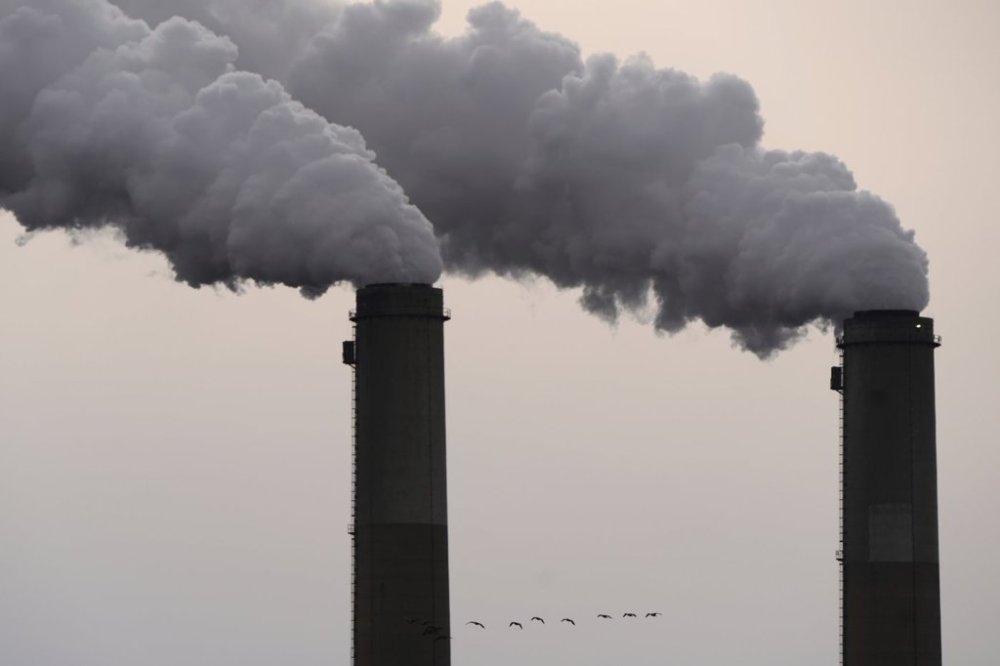Carbon budget to keep global warming at 1.5 C could be exhausted in 3 years: report
Advertisement
Read this article for free:
or
Already have an account? Log in here »
To continue reading, please subscribe:
Monthly Digital Subscription
$0 for the first 4 weeks*
- Enjoy unlimited reading on winnipegfreepress.com
- Read the E-Edition, our digital replica newspaper
- Access News Break, our award-winning app
- Play interactive puzzles
*No charge for 4 weeks then price increases to the regular rate of $19.00 plus GST every four weeks. Offer available to new and qualified returning subscribers only. Cancel any time.
Monthly Digital Subscription
$4.75/week*
- Enjoy unlimited reading on winnipegfreepress.com
- Read the E-Edition, our digital replica newspaper
- Access News Break, our award-winning app
- Play interactive puzzles
*Billed as $19 plus GST every four weeks. Cancel any time.
To continue reading, please subscribe:
Add Free Press access to your Brandon Sun subscription for only an additional
$1 for the first 4 weeks*
*Your next subscription payment will increase by $1.00 and you will be charged $16.99 plus GST for four weeks. After four weeks, your payment will increase to $23.99 plus GST every four weeks.
Read unlimited articles for free today:
or
Already have an account? Log in here »
The world is on pace to emit enough greenhouse gas emissions over the next three years to blow by an international target to limit global warming to 1.5 C, according to a new study co-authored by a Canadian researcher who says the finding underlines the need for urgent transformational change.
The study by more than 60 scientists says the 1.5-degree carbon budget – how much CO2 can be released while staying below that limit – sits at about 130 billion tonnes as of the start of 2025.
At current levels, that budget would be exhausted in a little more than three years, the report said. Within the next decade, the budgets for 1.6 and 1.7 degree warming thresholds are at risk too, the report found.

Concordia University professor Damon Matthews said “every increment matters” in the effort to avoid increasingly severe climate impacts, from thawing permafrost to raging wildfires.
“It’s become a question of how low we can keep the temperature peak, and can we implement measures to return from that temperature peak in the latter portion of the century,” said Matthews, a report co-author and carbon budget expert.
The 2015 Paris Agreement committed countries to pursue efforts to cap global warming at 1.5 C and keep it well below two degrees compared to the pre-industrial average, a guardrail to avoid some of the most catastrophic and irreversible climate impacts.
The more ambitious target was pushed by small island nations and backed by an emerging scientific consensus, which showed it would reduce the risks of extreme heat, sea level rise and coastal flooding.
“It’s a notable political failure when we breach that level, that we did not manage to get our stuff together fast enough to solve this problem,” said Matthews.
“We need to have unanimous public support for really bold, ambitious system-changing action.”
The third annual Indicators of Global Climate Change report looks to offer several measures reported by the Intergovernmental Panel on Climate Change. The IPCC publishes comprehensive assessment reports on the latest climate science every five to seven years.
The report found that, between 2019 and 2024, global mean sea level had increased by around 26 mm. That’s more than double the long-term annual rate of around 1.8 mm since the turn of the 20th century, said the report published in the journal Earth System Science Data.
It also confirmed the findings of several other assessments that last year’s global surface temperatures surpassed 1.5 degrees for the first time on record. It attributed about 1.36 degrees of that warming to human activity, driven by the burning of fossil fuels.
Surpassing the 1.5-degree threshold in a single year does not mean the Paris target has been broken. But the report estimates continued emissions at current levels could cause human-induced warming to hit 1.5 degrees in five years.
“The only way we’re going to prevent even worse outcomes is to engage and keep pushing, keep implementing the things that are needed to transform the energy system and drive down emissions,” said Matthews.
The findings come on the heels of a G7 summit hosted by Canada, where climate change largely eluded discussion. A joint statement by the leaders about efforts to prevent and mitigate wildfires was panned by some climate groups and scientists for failing to mention how climate change has fuelled those fires.
Meanwhile, Prime Minister Mark Carney’s support for new oil pipelines has also troubled some climate scientists.
“We’re not going to be able to drive emissions down if we keep building new fossil fuel infrastructure,” said Matthews, who also sits on an expert advisory body tasked with helping the federal government hit its climate goals.
That Net-Zero Advisory Body has recommended Canada adopt a domestic carbon budget set at between 10,000 and 11,000 megatonnes of CO2. At Canada’s current emissions levels, that budget would be exhausted in roughly 15 years.
This report by The Canadian Press was first published June 18, 2025.


